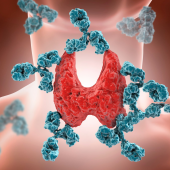Today we are doing a deep dive into what practitioners can do to support healthy men, healthy sperm, and consequently healthy babies. We invited two leading experts in naturopathic reproductive health to share their knowledge and insight into male fertility:
- Dr Jodie Peacock, a natural birthing doctor, an author, and a public educator. Her book, “Preconceived” has become an important resource for couples seeking healthy babies.
- Dr Jaclyn Chasse, a naturopathic physician dedicated to helping couples conceive naturally. Her practice “Perfect Fertility” focuses on fertility, sexual health, and family wellness.
In part two of this series we investigate why men with low-quality semen are more likely to have other health problems. In the next episode we reveal protocols for establishing a male patient's reproductive health.
Key Take-Aways
Sperm health as an indicator of general health and longevity
A man's overall health reflects the quality of the semen and the sperm that he produces. And men with low-quality semen are more likely to have other health problems.
Male sperm health is especially vulnerable to oxidative stress. Oxidative stress can cause the DNA in sperm cells to become damaged, leading to genetic abnormalities. This can reduce a man's fertility and also increase the risk of birth defects in any children conceived.
High levels of oxidative stress and poor mitochondrial function are big parts of almost every chronic disease state from diabetes to cancer, where we know that free radicals cause damage to cells and you don't have enough antioxidants to conduct repairs.
If we're seeing functional challenges with sperm, it's likely that other cells are having similar challenges and maybe just not displaying the output of that yet.
This could lead to an increased risk of more serious health issues later in life. Therefore, it is important to take measures to reduce oxidative stress and maintain healthy sperm production.
Eating a balanced diet, exercising regularly, and getting enough sleep are all important ways to reduce oxidative stress. Taking antioxidant supplements or engaging in activities such as yoga can also help.
==
The opinions expressed in this Nutramedica program are those of the guests and contributors. They do not necessarily reflect the opinions of Nutritional Fundamentals For Health Inc.
This video is intended for licensed or registered health professionals and students of health professions only. These statements have not been evaluated by the Food and Drug Administration. Information contained in these programs is not intended to diagnose, treat, cure, or prevent any disease.



